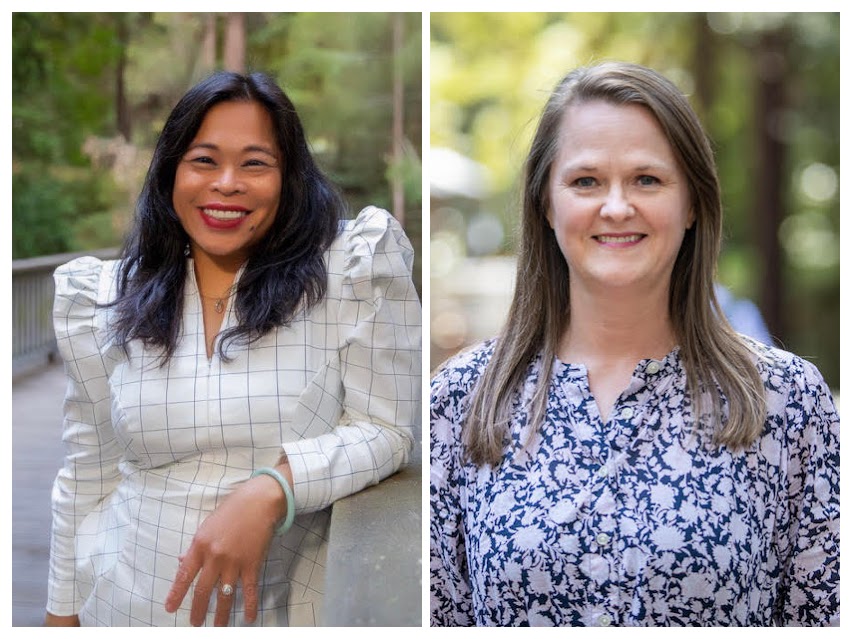Campus News
Proposal for new program, Pathways to the Professoriate in the Arts and Humanities, selected for funding by UC President’s Office
A new cross-divisional initiative to prepare graduate students in the Arts and Humanities at UC Santa Cruz from historically underrepresented groups to go on to the professoriate has been selected for funding.

A new cross-divisional initiative to prepare graduate students in the Arts and Humanities at UC Santa Cruz from historically underrepresented groups to go on to the professoriate has been selected for funding by the University of California-Hispanic Serving Institutions Doctoral Diversity Initiative (UC-HSI DDI). Pathways to the Professoriate in the Arts and Humanities was one of three proposals selected in a highly competitive review in which only the highest-ranking applications were recommended for funding. It is also the first initiative focused specifically on the Arts and Humanities to be selected since the 2019 launch of UC-HSI DDI.
“For decades, there has been robust funding on the state and national levels for these sorts of graduate and academic career pipelines within the STEM disciplines,” says UCSC Dean of the Division of Arts Dr. Celine Parreñas Shimizu who serves as Principal Investigator for the program. “The Arts and Humanities share similar achievement, retention, and graduation gaps, but have not had the same resources to support our students. This is an exceptional investment to advance educational equity in our divisions and a powerful tool for enduring institutional change.”
“Along with our partner in the Arts, the Humanities Division is committed to recruiting and retaining a more diverse faculty,” says Dr. Jasmine Alinder, Dean of the Humanities. “This Pathways initiative supports that work by helping us build more diverse graduate student cohorts.”
The Pathways program is a multifaceted initiative designed to provide students from UCSC and its regional partner HSI, CSU Monterey Bay, with faculty mentorship, summer research experiences, and professional development workshops at key points leading up to and during their graduate careers, practices that have been shown to have a positive impact on student performance and retention, particularly for underrepresented students.
Research indicates that these students face distinct academic, financial, and social barriers that prevent them from attaining an MFA/Ph.D. and moving on to the professoriate. National diversity data bear that out. An astonishing 82.8% of Humanities faculty are white, and a Strategic National Arts Alumni Project survey of career outcomes for UC arts alumni found that 91.2% of those who persisted in arts related professions, including the professoriate, were white.
“There is a hidden curriculum about navigating higher education that a student who is first generation, for example, may not be privy to, so there’s a real need to pull back that curtain and to provide students with the mentoring relationships, professional resources, and experiences and opportunities they need to really understand the academic landscape and thrive in it,” says Dr. Holly Unruh, Executive Director of the Arts Research Institute at UCSC. “Essential to this is an academic culture of inclusion and equity that supports students’ sense of belonging in addition to their academic success. Pathways makes this a priority, and its leadership team, including the deans of both the Arts and Humanities Division, is distinguished for leading divisional equity and diversity initiatives.”
In addition to the division deans, the leadership team includes faculty members from each who have been active in supporting underrepresented students as well as in campus efforts to examine climate and support for underrepresented faculty, and the faculty and staff directors of The Humanities Institute and the Arts Research Institute, who will lead and house all program activities.
“The Humanities Institute is thrilled to be partnering with our colleagues in the Arts on this important initiative,” says Irena Polic, Managing Director of The Humanities Institute. “One of our primary goals over the last decade has been to think deeply about graduate education in the Humanities and preparing our students for a wide range of careers. Our Graduate Student Success program, originally funded by a grant from the Mellon Foundation, has been transformative for the students in our division, especially those from underrepresented backgrounds. Pathways will be able to expand on that work and connect the existing programs across campus to maximize their impact across our divisions. With programs like these, we can not only build a stronger professoriate, we can build a stronger California.”
Pathways also builds on the success of two recently awarded U.S. Department of Education grants, Graduating and Advancing New American Scholars (GANAS)-Career Pathways and GANAS-Graduate Pathways, both administered through the office of Hispanic-Serving Initiatives. The GANAS graduate program is the first federally funded program to begin to reach into the Arts and Humanities Divisions, and Pathways seeks to maximize its impact by expanding the scope of the GANAS undergraduate summer research experience and adding additional service for graduate students.